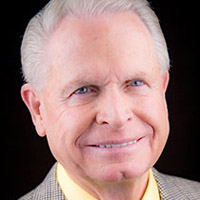The Tax Side of Dealing in Collector Cars

The tax side of dealing in collector cars can be quite interesting. Are you a collector? People collect all kinds of different things, including stamps, art, sports cards, jewelry, coins and cars to name just a few. Speaking of collectors, collectibles can be a great hobby but they can also draw the attention of the IRS, one of the greatest collectors of all time.
Collector Cars Are Not Tax-Free
Cars, particularly classic ones, have always been a popular collectible. However, there several tax issues surrounding collectible cars that you should be aware of. It’s no secret that the IRS loves to make waves with its investigations. Well-to-do car collectors who decide to skimp on their full tax bill are the perfect targets for the IRS to make examples of.
How Much Do You Owe?
So let’s take a look at some of the issues you should know about when collecting cars as well as some tips to make sure you’re paying the proper amount of tax on your collector cars.
Collectible Taxes & Deduction:
- Capital gains tax on collectibles: Ordinarily, capital gains on property that has been held for at least one year are subject to either a 0%, 15% or 20% tax rate depending on your income, however gains on collectibles such as cars are given a special 28% tax rate[1].
- When you sell a collector car you can also write off some of the expenses from your profit and thus lighten the tax burden. Any money you spend to restore or sell the car can be subtracted from your profit. However, make sure you keep good records.
- When it comes to purchasing a collector car, you will also be liable for state sales tax on that car if you drive it away. If you have it shipped somewhere else, then you will have to pay sales tax to the state where you have it shipped.
- One option some collectors try to pursue is to obtain a dealer’s license. This will allow them to avoid any state sales tax altogether. However, be careful, if you are actually a collector and not really a dealer, then you would actually be making a false claim to your state, which could land you in hot water. On top of that, you might have difficulty insuring your vehicles.
More Forms
You will also need to be prepared to fill out additional forms with your tax return when you have capital gains and/or losses. All of the important details of the sale of your vehicle will need to be reported on Form 8949. Then, combined with your capital losses, the information will be put on Schedule D where you will need to tally your net gain or loss.
We hope you found this updated article about the tax side of dealing in collector cars helpful. If you have questions or need expert tax or family office advice that’s refreshingly objective (we never sell investments), please contact us or visit our Family office page or our website at www.GROCO.com. Unfortunately, we no longer give advice to other tax professionals gratis.
To receive our free newsletter, contact us here.
Subscribe to our YouTube Channel for more updates.
Considerately yours,
GROCO, GROCO Tax, GROCO Technology, GROCO Advisory Services, GROCO Consulting Services, GROCO Relationship Services, GROCO Consulting/Advisory Services, GROCO Family Office Wealth, and GROCO Family Office Services.
[1] https://www.irs.gov/taxtopics/tc409#:~:text=Net%20capital%20gains%20from%20selling,at%20a%20maximum%2025%25%20rate.
Doing the Tough Things First | Ray Zinn
About Ray Zinn Ray Zinn is a co-founder of the Company Micrel and has been its President, Chief Executive Officer and Chairman of its Board of Directors since the Company’s inception in 1978. As our Chief Executive Officer, Mr. Zinn gives the Board of Directors insight and in-depth knowledge of the semiconductor industry and…
Todays China | Nicholas Hope
About Nicholas Hope Nicholas Hope is the Director of the Stanford Center for International Development (SCID). He also directs SCID’s China research program. His current research is private enterprise development in China and progress of reforms in China, especially in the financial sector. His interests are in East Asian economies, especially China and Indonesia,…
Why Are True Leaders Rare? | Jonathan Coslet
About Jonathan Coslet Jonathan Coslet has been with TPG Capital since it started in 1993. Currently he is the firm’s Chief Investment Officer and serves on TPG’s Executive Committee. Jonathan graduated Valedictorian from the Wharton School of Business where he received his Bachelor’s of Science in Economics and Finance. He received his MBA from…
Silicon Valley’s Bubble- What Happens When It Bursts? | Montgomery Kersten
About Montgomery (Monty) Kersten Montgomery Kersten serves development-stage companies as an independent board member, investor and advisor. Mr. Kersten was the co-founder & CEO of VitalSigns Software (later acquired), and serves as the independent board member of Silicon Valley private companies. He has worked for 35 years as an executive in sales, marketing, business…




